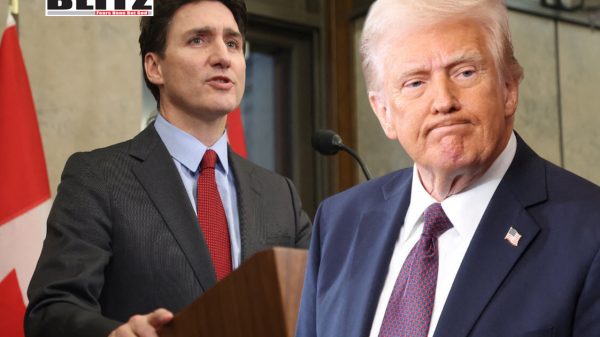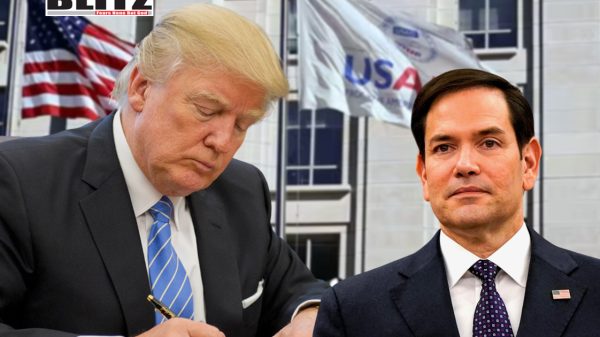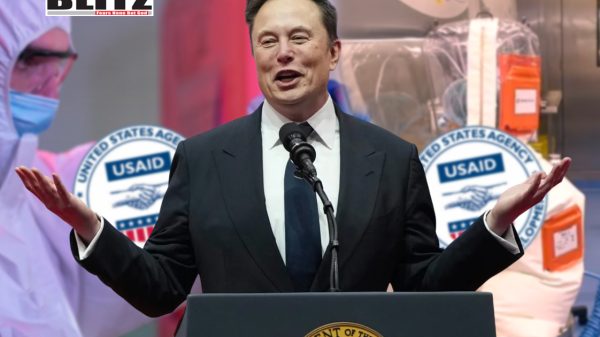Support the UK growth agenda and give it time
- Update Time : Wednesday, February 5, 2025

Pity Rachel Reeves, the UK’s Chancellor of the Exchequer. Before she had even finished delivering her highly anticipated “growth speech” on January 29, critics flooded social media and the airwaves. Some argued that her approach was too scattered, others claimed it relied too heavily on long-term strategies, and some even suggested that her plans conflicted with the government’s environmental commitments. The financial feasibility of the entire agenda was questioned, with many concerned about the cost. Among the harshest critics was Ryanair CEO Michael O’Leary, who bluntly declared that Reeves “hasn’t a clue.”
While it is fair to scrutinize the government’s economic strategies, dismissing Reeves’ plan outright would be premature. The UK’s economic challenges are complex, and no single plan will resolve decades of underinvestment overnight. Perfection is unattainable under the UK’s current financial conditions, and the pursuit of an elusive ideal should not stand in the way of a plan that, while imperfect, offers a clear roadmap toward economic recovery.
Despite the criticism, Reeves’ speech succeeded in multiple areas. First, it reinforced the government’s commitment to prioritizing economic growth, describing it as the “No. 1 mission.” Second, Reeves laid out several targeted efforts, including zoning reforms, reducing overregulation, and leveraging pension fund surpluses to increase domestic investment. These measures aim to remove barriers currently hampering economic growth.
Furthermore, Reeves emphasized the need to cultivate new economic drivers, such as expanding the Oxford-Cambridge corridor into a European “Silicon Valley.” By scaling up research hubs and supporting startups in innovative fields, this initiative could position the UK as a global leader in technology and research. The chancellor also highlighted the importance of improving trade relations to expand market access and attract foreign direct investment. Lastly, she acknowledged that trade-offs would be inevitable when implementing such a comprehensive reform agenda.
The UK’s economic stagnation is not a new problem. Decades of underinvestment, low productivity growth, and sluggish economic expansion have left the country struggling to compete on the global stage. Reeves’ plan is an attempt to break this cycle by fostering a business-friendly environment that encourages investment, job creation, and economic expansion.
Importantly, her agenda also aims to prevent the severe budget cuts that had been considered just a year ago, including a proposed 1% reduction in public investment relative to GDP. Instead, the focus is on enabling the private sector to drive economic growth while ensuring that the government provides a stable and supportive regulatory environment.
A well-crafted economic plan is meaningless if it is not executed effectively. Reeves’ success will depend on the government’s ability to translate her proposals into concrete action. This will require seamless coordination across various government departments, ensuring that policies are implemented simultaneously and with accountability. Prime Minister Keir Starmer has emphasized the importance of integrating economic growth considerations into all cabinet decisions, reinforcing the need for a comprehensive, whole-of-government approach.
The scale of the challenge cannot be overstated. According to a 2024 study by the Institute for Public Policy Research, the UK has had the lowest level of investment among G7 countries for 24 of the last 30 years. The study estimates that this chronic underinvestment has resulted in a cumulative shortfall of £1.9 trillion. If the UK had simply maintained an average investment level relative to its G7 peers, its economic landscape would be vastly different today.
Given this reality, any government seeking to reverse decades of underperformance will need both time and favorable external economic conditions. The lack of budgetary flexibility means that there is no single, transformative measure that can immediately jumpstart growth. Instead, Reeves must rely on a combination of policies that, collectively, will help stimulate investment and productivity.
For Reeves’ growth agenda to succeed, it must secure the buy-in of both businesses and consumers. Currently, business and consumer confidence remains low, posing a significant barrier to economic expansion. If companies and households do not believe in the government’s vision, they are unlikely to make the necessary investments or increase spending in ways that would drive economic growth.
Recognizing this, the government has made a notable shift in its messaging, moving away from previous pessimistic economic narratives to a more optimistic outlook. While acknowledging the UK’s economic challenges, officials are now emphasizing signs of progress and recovery. This pivot is crucial in fostering an environment where businesses feel secure enough to invest and expand.
Given the stakes, the intense criticism of Reeves’ speech-especially from those offering no viable alternatives-is counterproductive. The UK’s economic problems will not be solved by dismissing well-intentioned policies before they have had a chance to take effect. Similarly, reducing the government’s entire economic strategy to a single contentious issue, such as the Heathrow Airport expansion, oversimplifies the complexities of economic growth.
History offers valuable lessons in this regard. In March 2008, Nobel laureate economist Michael Spence co-authored a paper titled Growth Strategies and Dynamics: Insights from Country Experiences. One of its key findings was that successful growth strategies rarely outlined every step of the policy journey in advance. Instead, policymakers defined their long-term objectives, initiated a set of initial measures, and adapted their strategies as new data emerged.
The UK would do well to adopt a similar approach. Rather than rejecting Reeves’ plan due to its imperfections, policymakers and stakeholders should focus on refining and improving it. Economic growth is a dynamic process, and expecting a flawless strategy from the outset is unrealistic.
The UK’s economic challenges are significant, but Reeves’ plan represents a step in the right direction. By prioritizing investment, reducing barriers to growth, and fostering innovation, the government is laying the groundwork for long-term economic recovery. While execution will be challenging, the alternative-continuing on the current trajectory of stagnation and underinvestment-is far worse.
Critics should recognize the magnitude of the task at hand and allow the government’s strategy time to take effect. Rather than seeking perfection from the outset, policymakers must remain adaptable, willing to make adjustments as needed. The UK has an opportunity to reverse decades of economic decline, but only if it is willing to give growth a chance.
















Leave a Reply